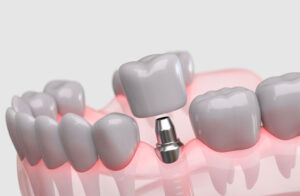For many people, TMJ is secondary to stress. When you’re in a stressful situation, you can clench your jaw, which strains jaw muscles and puts pressure on teeth. You may experience neck pain, a sore jaw, and headaches.
If this describes you, stress management might help you reduce or eliminate your TMJ symptoms. Here are some tips that can help you get control of your stress.
Identify Stressors
The first step in getting control of your stress is knowing what stresses you out. Is it work? Is it family? Do you get stressed looking forward to events, or is it the aftermath of events that tends to cause you the most stress?
Know what stresses you out can give you a place to start when trying to cope with these events.
Practice the 4 A’s
One of the most highly recommended stress management techniques is called the four A’s. This stands for Avoid, Alter, Adapt, and Accept.
Avoid Stress: If you can just keep from getting stressed, you’re much better off than trying to deal with stressful situations. If certain people stress you out, avoid them. If you have too much on your to-do list, pare it down by learning to say “no” to unnecessary requests and outsourcing unpleasant tasks. Modern technology often offers ways around these tasks, and in the modern gig economy there are many people who want to do your most undesirable tasks–often for a reasonable fee.
Alter the Situation: If you’re used to keeping your feelings bottled up, maybe it’s time to express them. Encourage others to express themselves, too. Often, this may reveal a good compromise point where everyone gets what’s most important to them. Sometimes you’re stressed because you don’t have enough rest in your schedule. Make this a priority, and include methods of expressing yourself through creative outlets that can reduce your stress.
Adapt: Stress isn’t just about the events, it’s about your response to them. You can have a better response if you look at stressful events in context and know when they’re not as important as you’re making them out to be. This can also help you be grateful when you realize that stressful events aren’t all that’s in your life. And remember that if you’re holding yourself to standards that are too high, this could also be causing you significant stress. Get comfortable with situations where “good enough” will have to do.
Accept: Some things are just out of your control. Trying to control them stresses you unnecessarily. One thing you can’t control is the past. You have to accept mistakes by yourselves and others, forgive them and forgive yourself, and move on. And remember to look for the silver lining in every cloud.
Live Healthy
An unhealthy lifestyle can contribute to stress. Eat a balanced, healthy diet and cut out excessive fast food. Don’t rely on alcohol, cigarettes, caffeine, or other chemical controls for stress relief.
Get more exercise, too. Living an active life can help get rid of your stress. Find physical activities that help eliminate your stress, whether it’s running that lets you leave your troubles behind or dancing that helps you lost them in the music.
Get Help
You don’t have to deal with your stress alone. If you’re having trouble managing stress on your own, seek help. Help can come in lots of forms: psychologists, religious authorities, yogi, your spouse, or even a trusted friend. As long as it’s someone who helps relieve your stress.
What If TMJ Doesn’t Go Away?
What if you’ve gotten your stress under control, but your TMJ is still affecting you? If that’s the case, then either there’s another cause to your TMJ, or stress-related clenching has caused damage to your teeth and/or jaw. It’s time to talk to a TMJ dentist.
If you are looking for a TMJ dentist in Westchester County, please contact us today for an appointment at Advanced Dentistry of Mohegan Lake.





